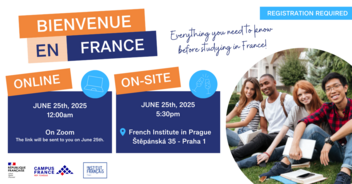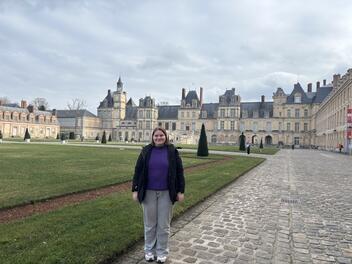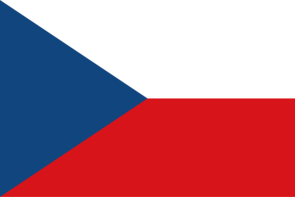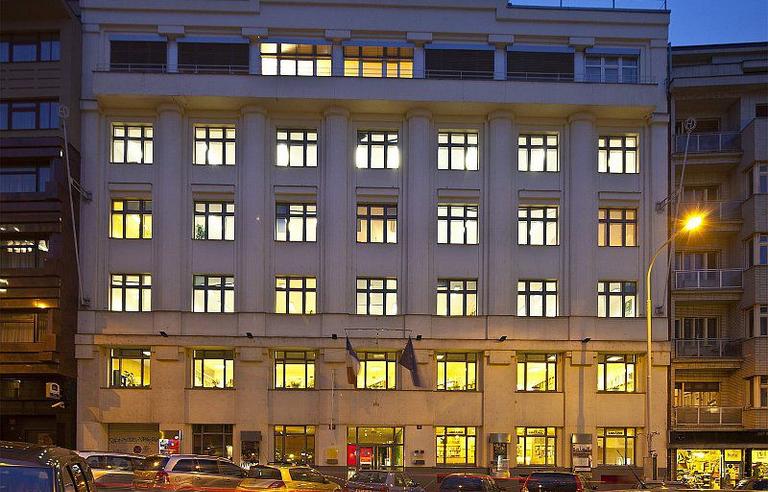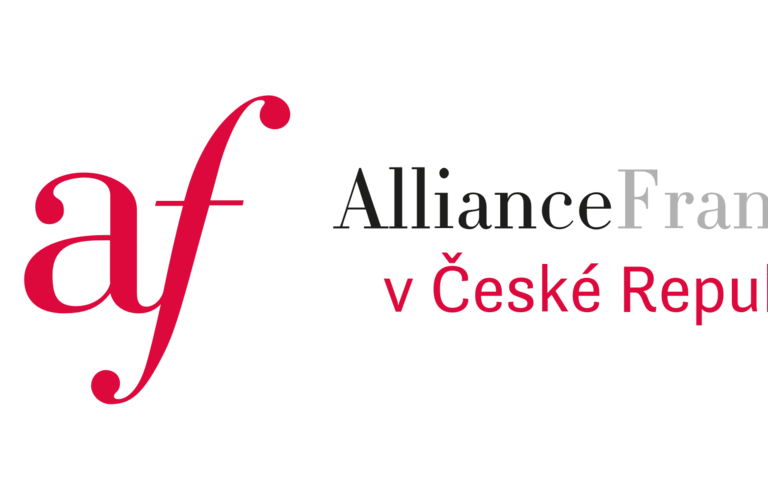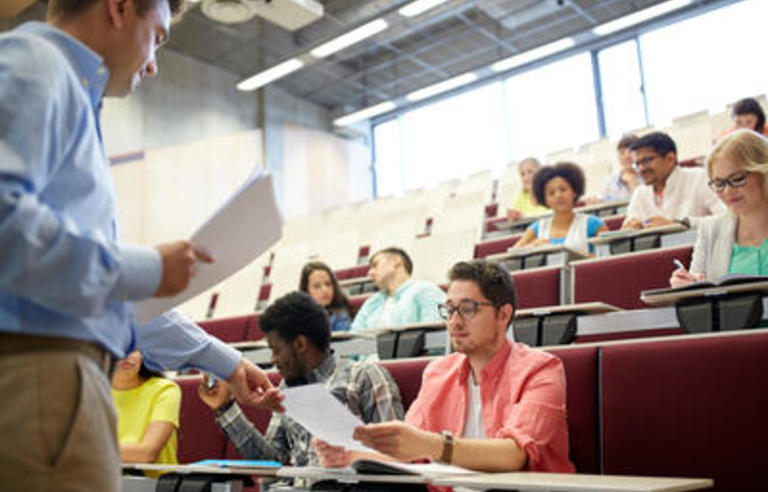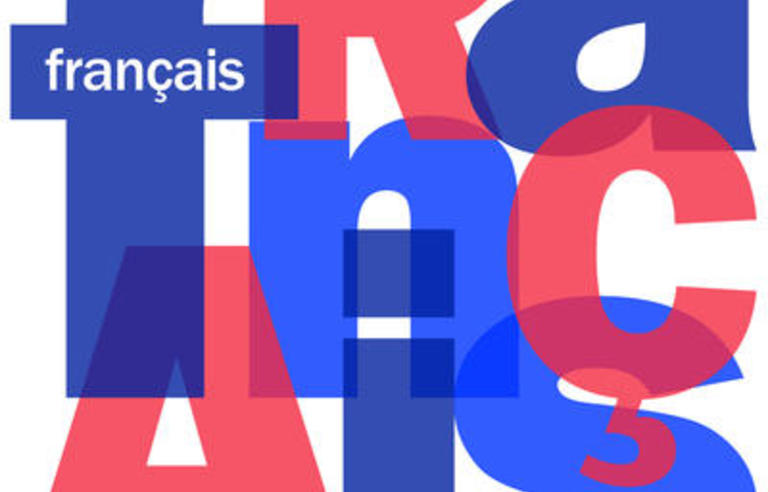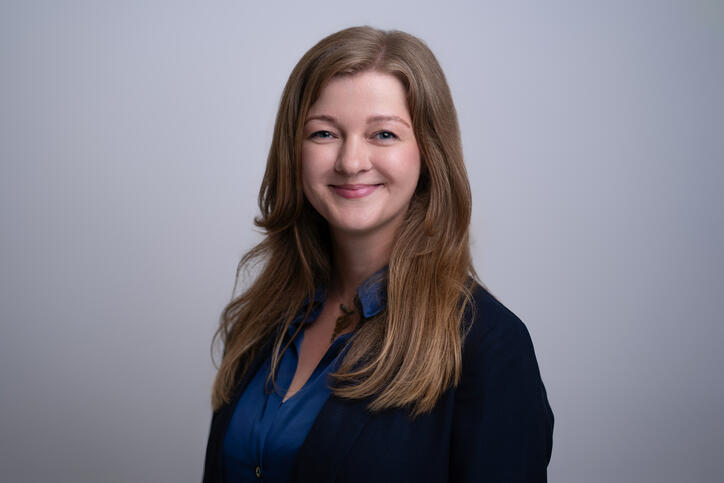
Monika, student at INSP in Strasbourg
“From a Czech ministry to a French prefecture: French opens unexpected paths."
- Where did you study in France? Which field did you study there?
I was fortunate to be selected for the Cycle international long (CIL) of the Institut national du service public (INSP), the prestigious school that succeeded the École nationale d’administration (ENA), known for decades as the training ground for French senior civil servants.
The INSP was established in 2022 to modernize this legacy and to train a more open, diverse public service oriented toward contemporary challenges. I had the opportunity to study there during this transitional period between the two institutions.
From September 2023 to October 2024, I followed this intensive 14-month program as part of the Joséphine Baker cohort. The program is aimed at foreign public sector professionals and includes a shared theoretical curriculum with the French students who enter through competitive exams. It combines a demanding academic phase with hands-on professional immersion within the French administration.
Alongside my French and international peers, I studied the major contemporary challenges of public policy: public administration, digital and ecological transformation, public finance, negotiation, management, and crisis response.
- Why did you choose to study in France?
Before joining the INSP, I worked in the Czech public sector as a legal advisor. I was looking for a program that would help me strengthen my public management skills with a strong practical dimension. The Cycle international long at INSP was a perfect match. It’s not a purely theoretical or academic program in the traditional sense—it’s a concrete immersion in the day-to-day workings of French public administration, including placements in prefectures or ministries, crisis management simulations, and real-life case studies.
And I have to admit: as someone who’s been fascinated by the French language since high school, it was also a personal dream. A bit of a crazy dream that came true in Strasbourg.
- Did you speak French before coming to France?
Yes, knowledge of French was essential. The entire program, including the administrative internship, is conducted entirely in French.
Personally, I started learning French as a second foreign language in high school, like many students in the Czech Republic. Even though, in my home region near the German border, it wasn’t the obvious choice, I followed my interest in the language. That decision proved very useful later on, and I’m glad I made it—it opened many doors for me, including the one to INSP.
- How did you finance your mobility to France?
Unfortunately, there is currently no specific financial support mechanism from Czech institutions for this type of program. That’s why I truly appreciated the support offered by INSP—their scholarship allowed me to cover a significant portion of the costs related to participation in the program.
- What have you gained from studying in France? From an academic, a professional and a personal point of view?
This experience has transformed me on multiple levels. Professionally, I discovered the richness and complexity of the French administration, especially the emphasis on innovation and the use of artificial intelligence in public services.
Personally, this experience reinforced my belief that international exchanges are a powerful source of inspiration. Interacting with participants from all over the world—diplomats, judges, public finance experts, and education professionals—was deeply enriching and thought-provoking. This diversity of perspectives on public policy is, in my view, one of the most valuable aspects of the program.
- In your opinion, what are the advantages of studying in France?
Studying in France means benefiting from a rigorous, well-structured intellectual ecosystem. The grandes écoles model, especially that of INSP, offers a multidisciplinary education that prepares students for the practical realities of public service. It’s also a stimulating international environment where you learn as much in informal conversations as you do in the classroom. And of course, the cultural and historical richness of France makes the whole experience even more unforgettable.
- According to you, what is the most important advantage and the most important drawback of the city where you studied in France?
Most of the training took place in Strasbourg—a vibrant city, not too big, very welcoming, with a real European atmosphere. It’s a perfect setting for students: friendly and full of opportunities.
If I had to mention one drawback, perhaps it would be the somewhat unpredictable Alsatian weather… but that’s also part of the charm!
My greatest surprise was my internship in Val-d’Oise. I didn’t know this department in the Île-de-France region at all, and I was moved by the beauty of its landscapes. It’s a place that inspired Van Gogh, Cézanne, Pissarro… and when you walk around, you quickly understand why.
- What is your best memory of this experience?
It’s hard to pick just one, as the whole experience was so rich in many ways. But if I had to choose, without hesitation, it would be the internship at the préfecture of Val-d’Oise. This immersion happens early in the program, right after the introduction phase—in other words, you’re thrown straight into the deep end. Sink or swim! In hindsight, it’s probably the best learning environment possible. Working in the prefect’s office helped me understand in very concrete terms how public policy takes shape on the ground. Seeing local realities is essential to grasping the impact of national-level decisions. And amidst the administrative jargon, early morning meetings, and urgent matters to deal with, there were also genuine moments of learning and camaraderie. An unforgettable experience on every level.
- What advice would you give to future Czech students in France?
Trust your choice! Learning French is already a huge achievement. The language will open countless academic, professional, and personal doors. And above all, stay curious, open-minded, and proactive—that’s how you’ll get the most out of this experience.
Actualités recommandées
